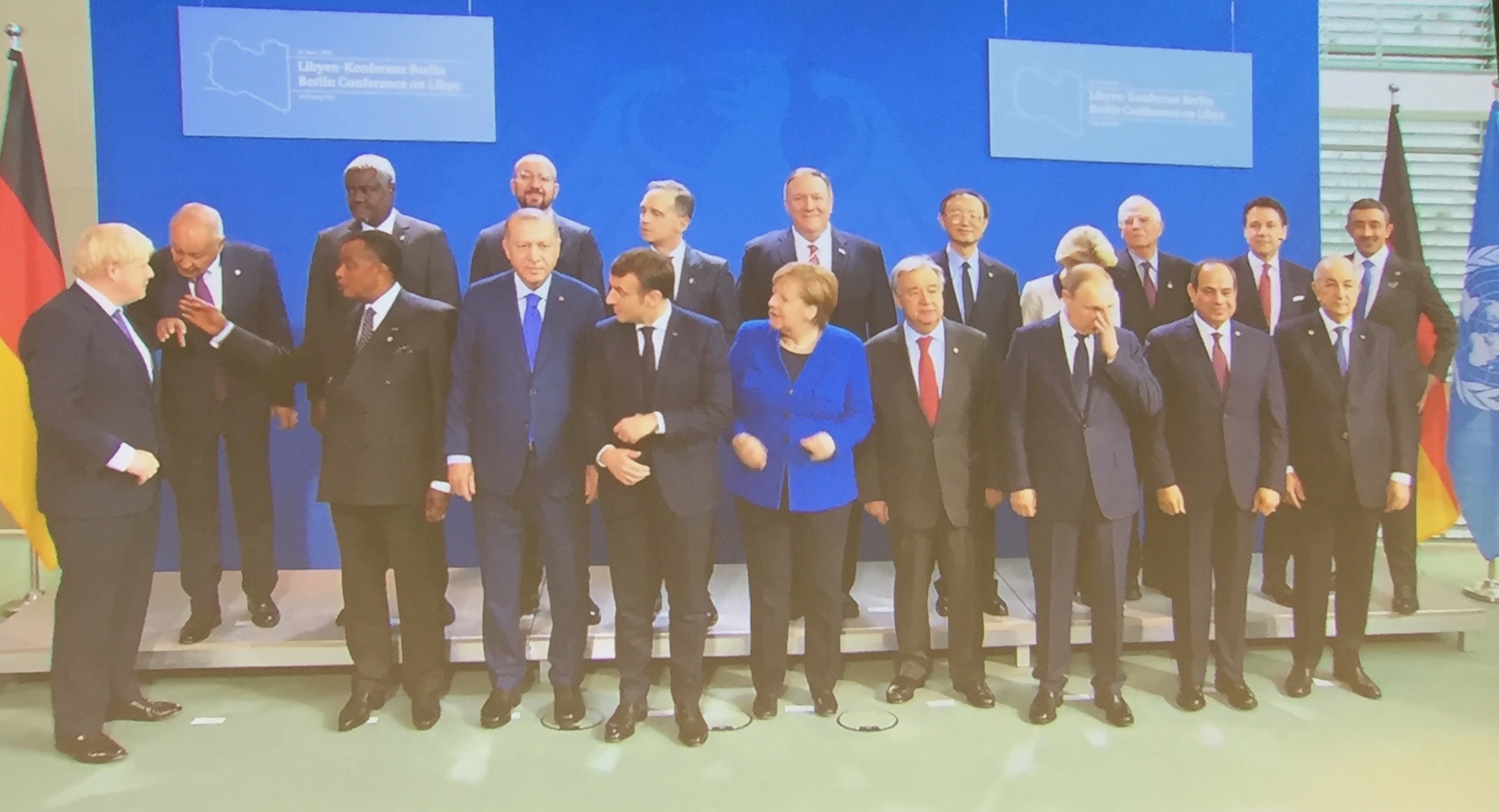By LH writer.

Berlin, 19 January 2020:
Leaders of the main countries involved in Libya today agreed in Berlin to take steps to turn the fragile truce around Tripoli into a permanent ceasefire. They also agreed that no further military support, including weapons, should be provided to the combatants in Libya. No sanctions for any violations were discussed, however.
Speaking at a press conference after the meeting, German Chancellor Angela Merkel said that the truce which started in 12 January would continue and that a committee of ten military officials – five appointed by Faiez Sarraj, head of the Government of National Accord (GNA), and five appointed by the head of the Libyan National Army, Khalifa Haftar, would be set up and meet in Geneva in the coming days to work out the basis for a lasting ceasefire.
Attending the Berlin Conference which was chaired by Merkel, were Russia’s President Vladimir Putin, Turkish President Recep Tayyip Erdogan, Egyptian President Abdel-Fattah El-Sisi, French President Emmanuel Macron, Algeria’s new President Abdelmadjid Tebboune, President Denis Sassou Ngueso of the Republic of Congo, British Prime Minister Boris Johnson, Italian Prime Minister Giuseppe Conte, US Secretary of State Mike Pompeo, the head of foreign affairs in the Chinese communist party’s politburo Yang Jiechi, UAE Foreign Minister Sheikh Abdullah bin Zayed Al-Nahyan, UN Secretary General Antonio Guterres, UN Special Envoy to Libya Ghassan Salamé, African Union Commission Chairperson Moussa Faki Mahamat, European Parliament President Charles Michel, the head of the EU Commission Ursula von der Leyen, EU foreign policy chief Josep Borell Fontelles and Arab League Secretary-General Ahmed Aboul Gheit.
The meeting followed a call by Putin and Erdogan on 8 January for a ceasefire which was accepted by Sarraj but initially rejected then accepted by Haftar, and on 13 January by a meeting in Moscow attended by both men which again saw Sarraj signing up to a ceasefire but not Haftar. In Berlin, neither joined in the talks, refusing to be in the same room as the other, but they were kept informed of the discussions and agreed to continue the truce while the 5+5 military committee worked for a more permanent outcome.
According to both Merkel and Guterres, the international leaders agreed that there had to be an internal Libyan political solution to the conflict. There could be no military solution. There had to be a return to dialogue.
There was, however, no commitment to withdraw existing military support either by Turkey, the UAE, Russia or any other external players. The language used at the press conference also indicated there had been no break-though. “We have sent a strong signal that we are committed to a solution”, said Guterres, who likewise called on all actors “to respect” the arms embargo.
According to German Foreign Minister Heiko Maas, a timetable had been agreed with Russia and Turkey to end their support for the two sides.
It is claimed that behind closed doors, that there had been strong differences of opinion between some of the world leaders, with French President Macron reportedly telling Erdogan to end military intervention in Libya. Shortly before the conference got underway, moreover, the EU’s foreign policy chief had suggested to journalists that a ceasefire would be agreed in Berlin. It did not happen.
Guterres, though, said that as a result of the conference, the threat of dangerous escalation in the region had been averted. Merkel likewise expressed the view that as a result of the conference and other meetings, the situation was better than it had been a couple of weeks earlier. The conference had given strong support to the UN peace process, she added.
Among numerous Libya specialists and media in the German capital, however, there were concerns that the expectations if the conference had not been met, that no break-though had been achieved and that the conflict would continue.








